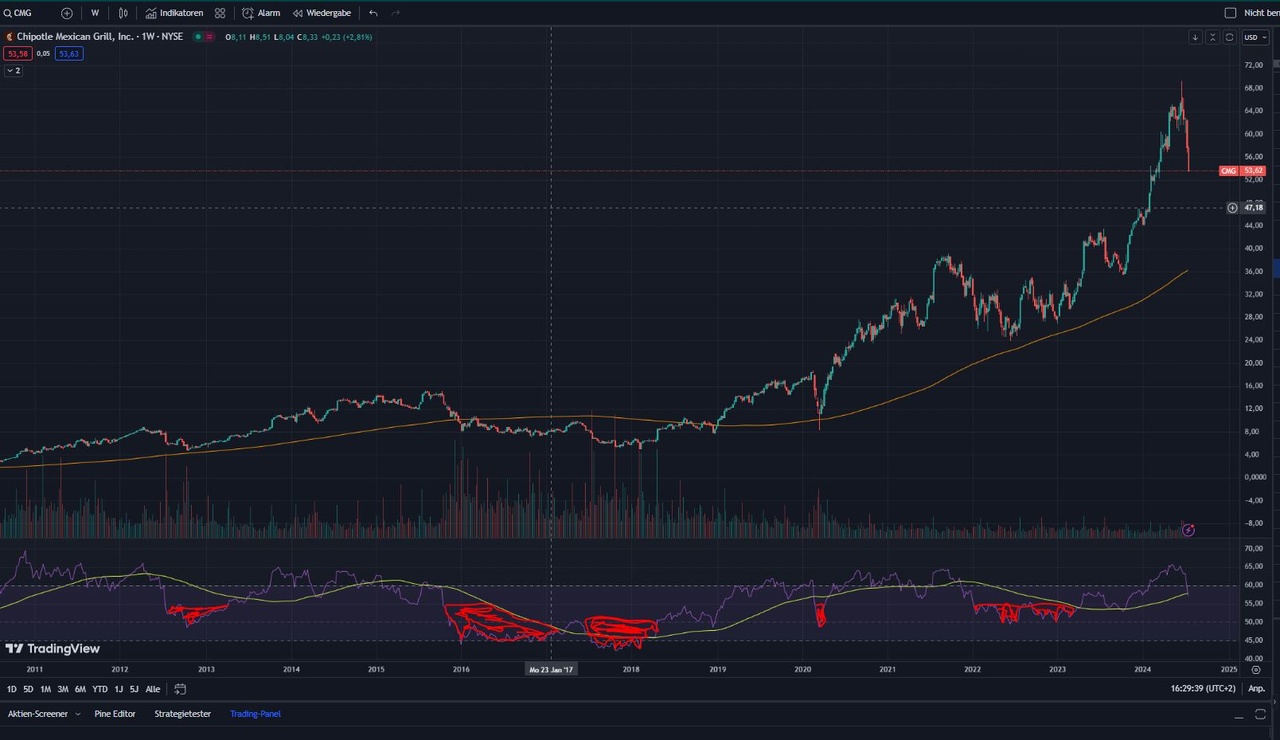Hi Guys,
once again something to brainstorm about. Some people probably find it difficult to make decisions about various share purchases. Maybe sometimes it's not so important when you buy a stock that you find interesting, but when you don't buy it, when not to buy it. Quasi rational hedging of Fomo purchases. Assuming that there is always a growth and investment thesis and factoring out a few bankruptcies, I make the following 2 assertions. There will definitely be pros and cons here:
Assertion 1:
The 200 DMA is the approximate fair value of a stock. It acts like a magnet, stocks that run far above or below it tend to return to the line sooner or later. (shown in the screenshot in gold)
A share that is well above the 200 level becomes unattractive to buy (although you could continue to hold it). (You could still hold it, however, but a "hold" is not included here). The assertion would thus encourage hasty purchases of e.g. $CMG (-0.82%)
$DECK (+2.22%)
$UBER (-0.14%)
$PSTG (+2.39%)
$CRWD (+2.85%)
$AMD (-0.35%)
$AXON (+1.43%) that are on my watchlist. What would I do in the case of Chipotle? I would wait until the stock returns to the 200 DMA.
Assertion 2:
Good times to buy are ALWAYS when the Weekly RSI is below 55 (preferably even below 50) and at the same time still below the average line (marked red in the screenshot)
You almost never hit the low when buying anyway. Nevertheless, you would buy your desired stocks close to the lows with a clear conscience and follow a clear line.
Now one or two people might say "but that's obvious". Then I say, it's not that clear. You only have to look at the Getquin timeline. Stocks with an RSI above 60 or 70 and well above the 200s are regularly requested here and considered good buys.
What do you think?
Does anyone act similarly?
Are the claims bullshit?





